Ghana: How Local Media Defied Pressure Over Vast Mine Deal
Volunteer-run station asked questions about a controversial salt mining project. Then the threats and violence began.
On January 13, 2022, a group of men in balaclavas, armed with guns and broken bottles, forced their way into a broadcast studio in Ada Foah, Ghana. Gabriel Adjaotor, a popular presenter on the community station Radio Ada, was mid-way through his late morning show on marriage and relationships.
Forcing 67-year-old receptionist Ruby Atteh into her chair and making producer Gideon Amanor Dzeagu kneel, they ransacked the office. One of the armed attackers, punched and kicked Adjaotor for nearly ten minutes.
“We will show you where power lies!” a member of the gang shouted.
The incident sits at the heart of the struggle for control over West Africa’s largest salt deposit, a resource integral to Ada’s cultural heritage and economic survival. Radio Ada’s reporting on a controversial business deal has brought its staff into direct confrontation with local authorities, corporate interests – and, at times, the security forces.
This isn’t just about a single radio station; it is a broader tale of community resilience, corporate power, and the stakes of standing up for the marginalised in the face of powerful opposition.
And it’s one I know intimately, having started my career as an intern at Radio Ada and reported in depth on the salt mining deal.
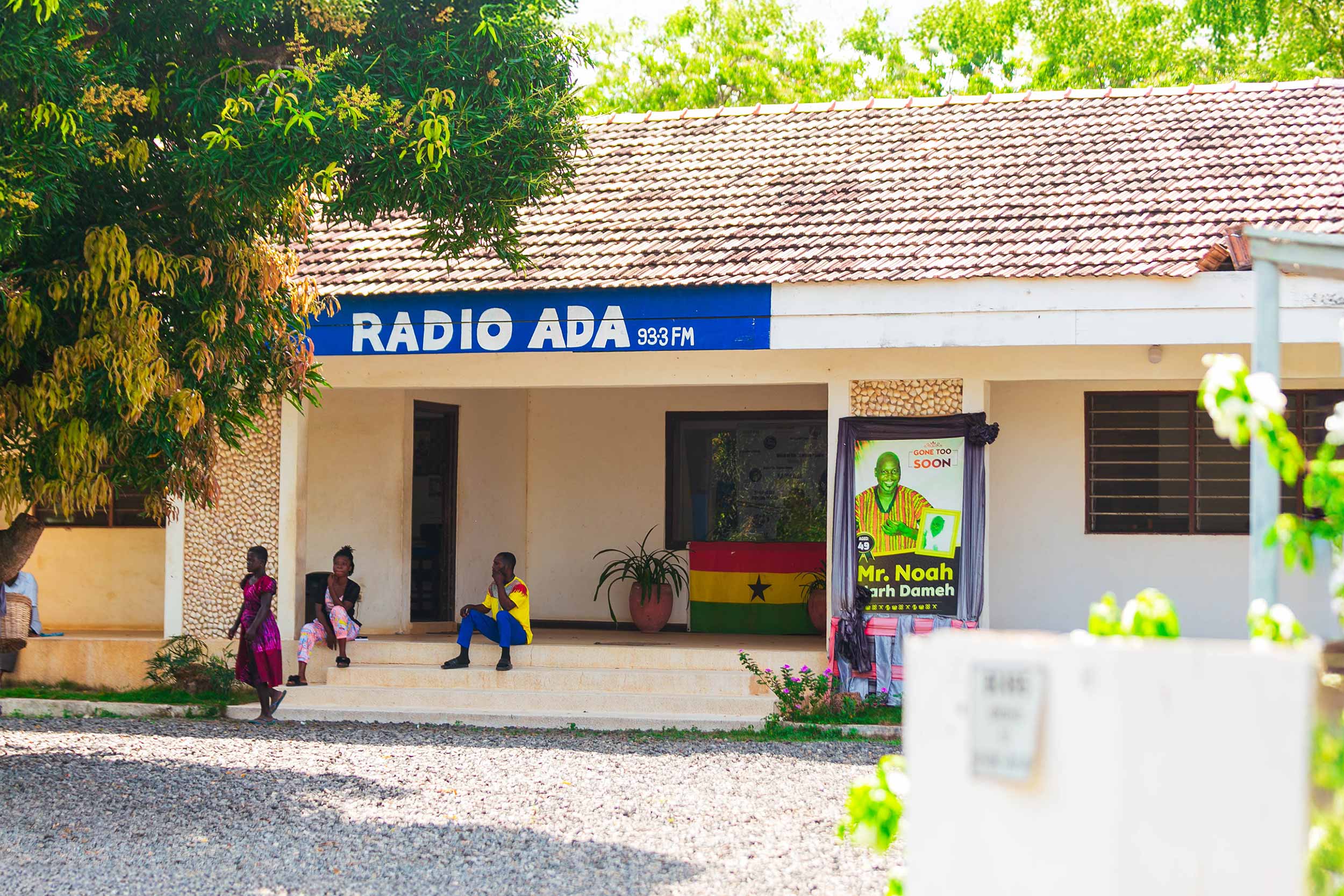
Local Issues
Radio Ada’s troubles began in June 2020, when it first reported on a major development: a decision by the Ada Traditional Council and the Ghanaian government to grant a concession for commercial salt production in the Songor Lagoon. The lagoon, located on Ghana’s eastern coast, is the largest single source of salt in West Africa according to NGO, Third World Network and traditionally treated as a common resource where communities were allowed to mine without restrictions.
The concession had been granted to Electrochem Ghana Limited, owned by the powerful Ghanaian businessman Daniel McKorley, known widely as McDan. But when Radio Ada broke the news, it sparked a backlash from some traditional leaders who were unhappy with the station’s reporting. Its management were summoned to appear before the Ada Traditional Council, where they were reprimanded and told to issue an apology.
Instead of backing down, however, Radio Ada launched a dedicated programme focused on the effects of the Electrochem lease on the local community. The greatest concern for many local people was that hiving off such a large part of the lagoon to Electrochem – it now claims ownership of 41,000 acres – would damage their livelihoods, not least because it placed artisanal salt miners at the risk of being charged with trespass.
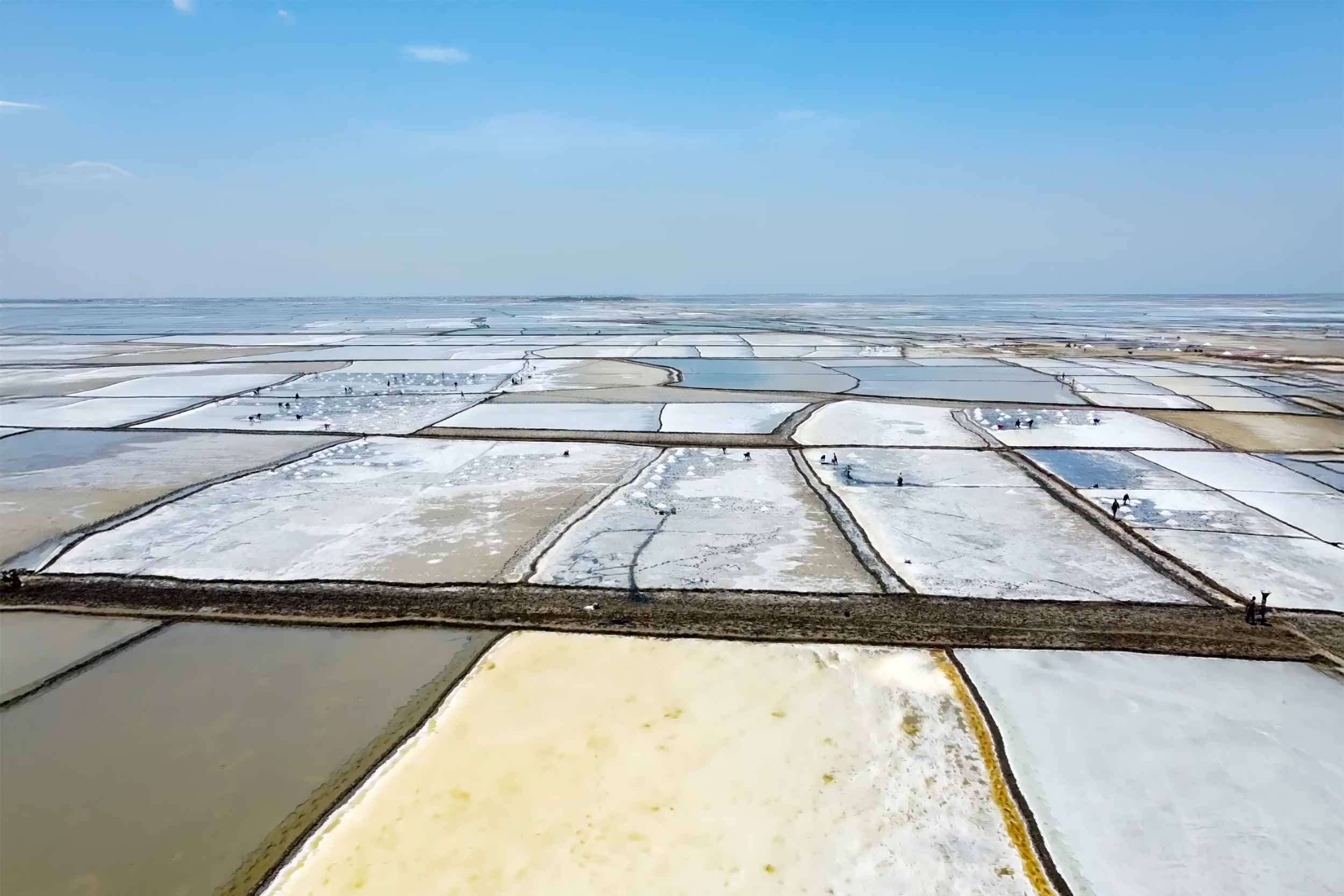
Through its show Manor Munyu [“issues in the town”], Radio Ada provided information on the Electrochem deal in the local Dangme language, making the complex agreement accessible to the community. As more details emerged, even some initial supporters of the deal started to have second thoughts.
“My expectations were very high,” said Naana Korleki Korley I, Divisional Queen Mother of the Tekpebiawe Clan, who hoped the deal would bring growth to her community. “I thought we had found an investor who had Ada at heart.”
But she felt shocked and betrayed, she said, when she found out that Electrochem had taken control of a far greater area than the 12,000 acres initially promised.
Radio Ada faced increasing pressure to halt the programme, including threats from Electrochem’s lawyers, but its staff remained committed to their reporting. As a community radio station, its contributors are all unpaid; I too, continue to volunteer when support is needed.
For Radio Ada’s management, translating and explaining the lease agreement was crucial, as it had been written in English without input from the local community.
“Those who believe leases concerning the lagoon should remain secret were unhappy with our efforts to make this public document truly public,” said Amanor.
As disquiet grew, violent confrontations rose. There were clashes between artisanal miners, whose families have long relied on free access to the lagoon, and Electrochem’s staff and security personnel. Between 2021 and 2023, there were at least 28 recorded incidents, with dozens of residents – including minors – sustaining injuries and at least one death.
Locals and Electrochem staff blame each other for the violence, but the conflict has put the entire community on edge. After clashes, security forces often raid people’s homes; 71 locals are being prosecuted so far.
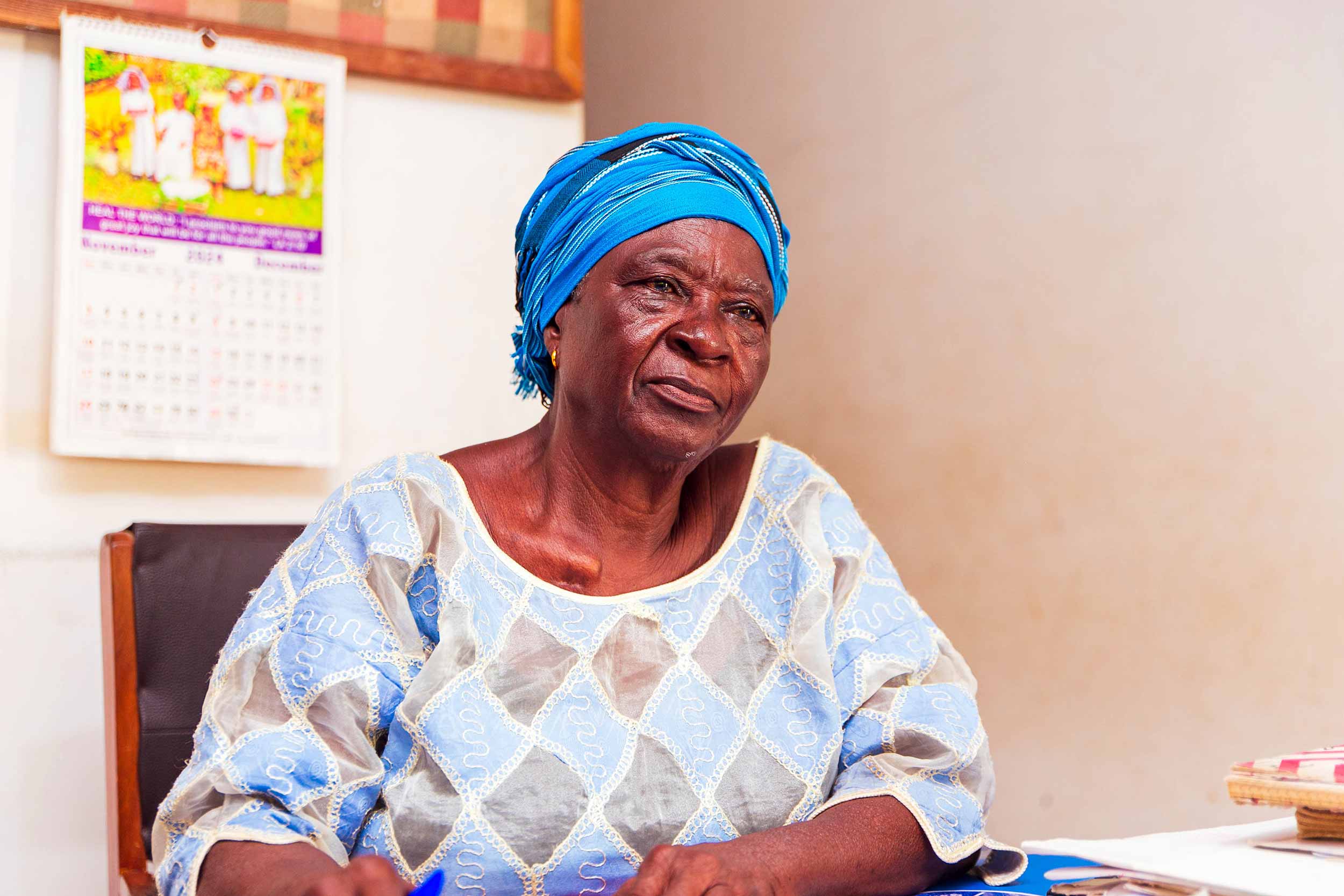
"Next Time We Will Do Worse"
It was in this context that the attack on Radio Ada took place. With much of its studio equipment destroyed, Radio Ada fell silent for several weeks as staff gathered donations for repairs and replacement equipment.
Amanor, the producer and anchor, is in no doubt about who was behind it.
“It’s linked to people who are not happy that we are serialising this document [the lease] to our listening community,” he said. “The hooligans who came to attack us on that day told us, ‘if you do not stop Manor Munyu, the next time we come we will do worse to you.’”
The station reported the attack to the police and filed a petition with the Ghanaian National Media Commission (NMC), which investigates media freedom issues.
But Amanor, who provided evidence including voice recordings and WhatsApp messages he believes show how the attack was planned, said that the police have shown “no interest” in prosecuting the perpetrators. The NMC, meanwhile, told IWPR that it couldn’t do anything since Radio Ada’s petition failed to name the individuals responsible.
Instead, the pressure on Radio Ada to drop the Electrochem story continued. Later in 2022, the Ada Traditional Council banned Radio Ada from broadcasting the celebrated Asafotufiam musketry festival, one of the region’s cultural highlights, on the grounds it had used “unrefined” language in its reporting on the salt mining deal.
The same year, Electrochem brought a defamation lawsuit against Noah Narh Dameh, Radio Ada’s deputy station coordinator, after he posted a photo on Facebook of a local resident handcuffed to a hospital bed, who he claimed had been beaten up at the behest of the company’s owner.
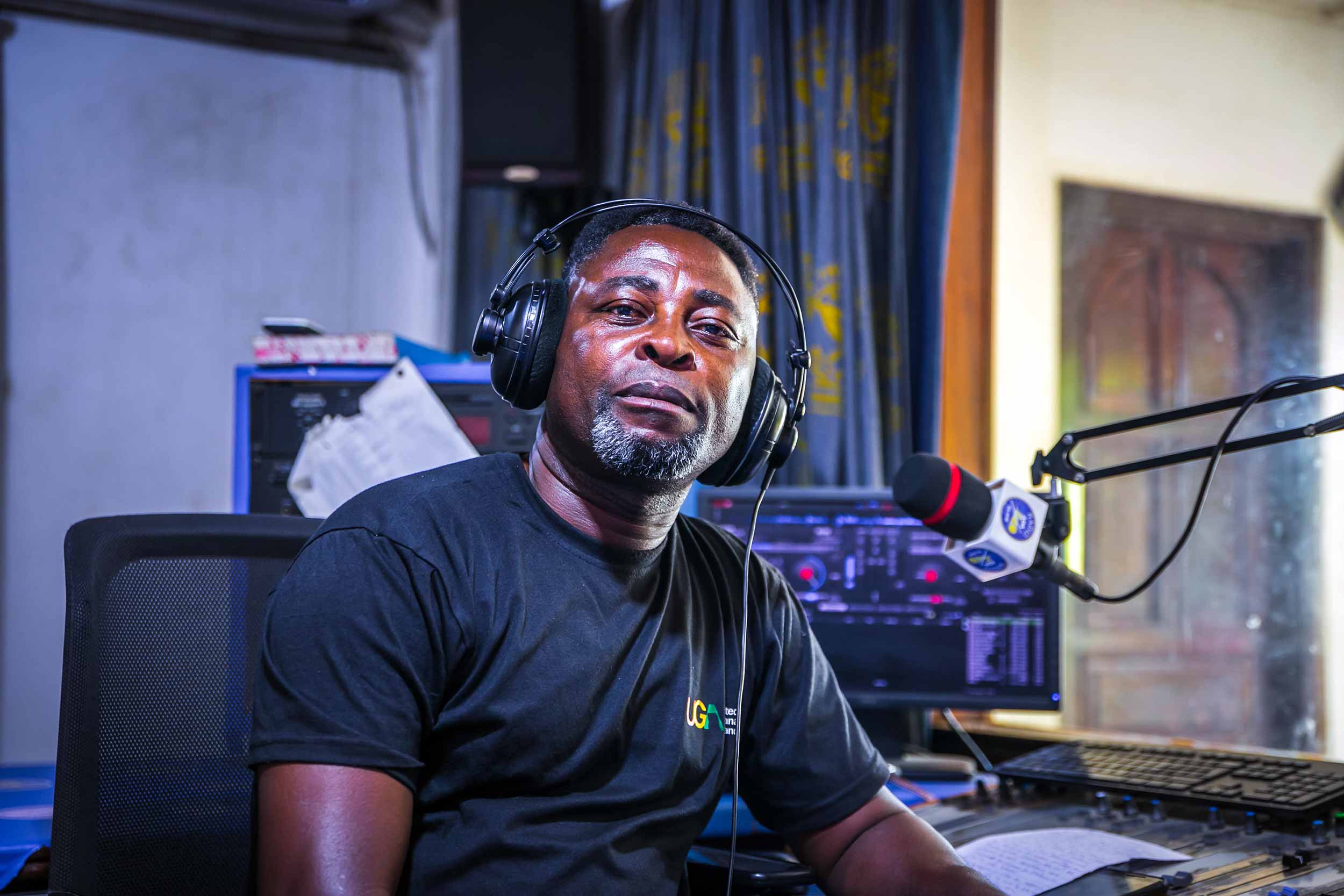
(Electrochem and McDan deny the allegations and told IWPR that the incident stemmed from a confrontation with police that had nothing to do with the company.)
Despite being initially discharged by a magistrate’s court in Accra in December that year, Dameh was re-arrested in March 2023 and detained for days without bail. The legal ordeal took a severe toll on the journalist’s health and professional life. In July 2023, a judge even accused Dameh of impersonating himself in court, so dramatically had ill health changed his appearance.
Media freedom groups including the Media Foundation for West Africa (MFWA) and the Ghana Journalists’ Association spoke out in Dameh’s defence, demanding an end to his prosecution and the repeal of Ghana’s false publication laws, which carry large fines and a prison sentence of up to five years. In recent years, these provisions have been employed more frequently, with dozens of journalists and media personnel facing arrest and detention in Ghana, most often for reporting on politically sensitive issues.
Dameh died in September 2023, two days after attending court for the last time.
“He was a true patriot and a beacon of journalistic integrity,” Amanor said, adding that Dameh “fought not for himself but for people around him and was ready to do that with the last blood in him”.
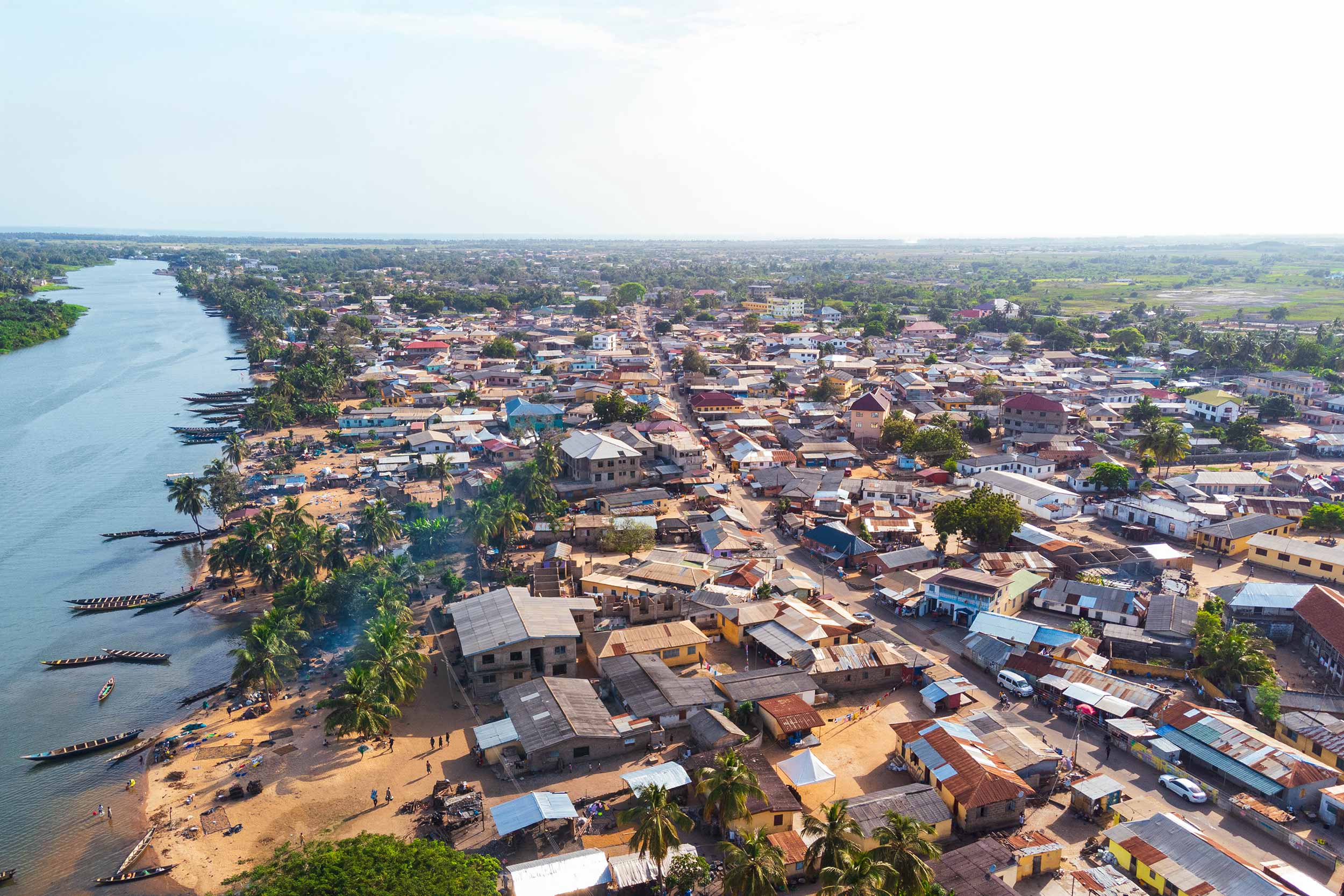
The Struggle Continues
Despite its challenges, Radio Ada has stayed on the airwaves, partly with the help of philanthropists and press freedom advocates like the MFWA. Amanor said that, in the absence of protection from the Ghanaian state, it’s the support of their listeners that gives staff the motivation to keep going.
“Our communities are stronger behind us than anything people can think of,” he said. “We plan and decide [our coverage] with them, and whatever’s in their interest, we will continue to do.”
The MFWA told IWPR that it urged the police “to conduct thorough investigations into the incident [the attack on Radio Ada] and bring the perpetrators to book”.
Meanwhile, the struggle over access to the Songor Lagoon is ongoing. Many local people fear for their livelihoods – some campaigners are trying to get the lease agreement overturned in court – while others believe that Electrochem could turn Ada’s economic fortunes around with its “white gold”.
For Adjaotor, the fates of the lagoon and of his radio station are intertwined. “The future of Radio Ada lies in the hands of the people of Ada – and Songor lies in the hands of the people of Ada,” he said.
